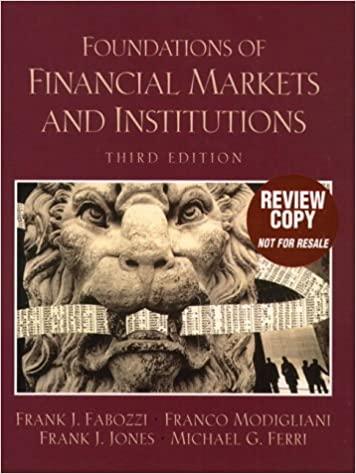Question
12. Nonannual compounding period The number of compounding periods in one year is called compounding frequency. The compounding frequency affects both the present and future
12. Nonannual compounding period
The number of compounding periods in one year is called compounding frequency. The compounding frequency affects both the present and future values of cash flows.
An investor can invest money with a particular bank and earn a stated interest rate of 6.60%; however, interest will be compounded quarterly. What are the nominal, periodic, and effective interest rates for this investment opportunity?
| Interest Rates | |
|---|---|
| Nominal rate | _____% |
| Periodic rate. Effective annual rate | _____% ______% |
| 6.77% You want to invest $24,000 and are looking for safe investment options. Your bank is offering you a certificate of deposit that pays a nominal rate of 6% that is compounded quarterly. What is the effective rate of return that you will earn from this investment? 6.257% 6.042% 6.319% 6.136% Suppose you decide to deposit $24,000 in a savings account that pays a nominal rate of 12%, but interest is compounded daily. Based on a 365-day year, how much would you have in the account after four months? (Hint: To calculate the number of days, divide the number of months by 12 and multiply by 365.) $24,729.77 $25,978.75 $25,853.85 $24,979.57 | |
Step by Step Solution
There are 3 Steps involved in it
Step: 1

Get Instant Access to Expert-Tailored Solutions
See step-by-step solutions with expert insights and AI powered tools for academic success
Step: 2

Step: 3

Ace Your Homework with AI
Get the answers you need in no time with our AI-driven, step-by-step assistance
Get Started


